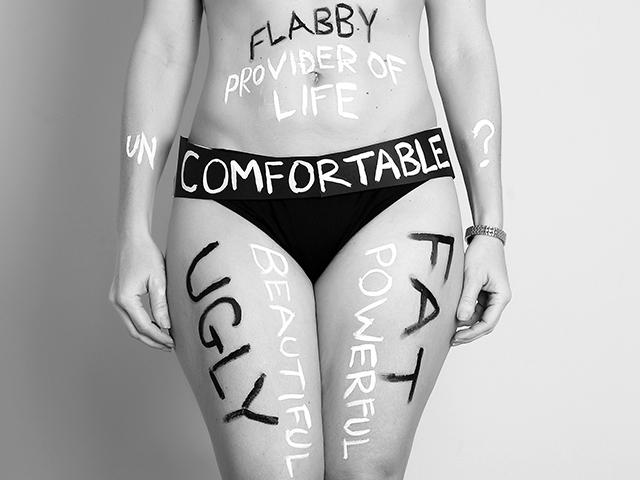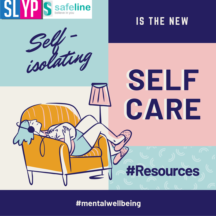Supporting Someone with an Eating Disorder
 If you haven’t been through an eating disorder, it can be a difficult concept to get your head around. What some people often fail to realise is that it is a mental health issue; it is not voluntary or a choice, even though it may have started out as a conscious decision.
If you haven’t been through an eating disorder, it can be a difficult concept to get your head around. What some people often fail to realise is that it is a mental health issue; it is not voluntary or a choice, even though it may have started out as a conscious decision.
For loved ones and friends, the answer seems simple – you’re too thin, eat something. However, for the person suffering with anorexia or bulimia, it is much more complex than that. So here are some suggestions on what you can do to support that person.
You can’t force someone to eat
If you are watching someone you love refuse food, you will naturally feel inclined to encourage them to eat something.
Although to you, you’re just being a concerned friend, parent, sister or brother. To that person, you are putting them in an uncomfortable, even terrifying situation. Think about telling someone with depression to “cheer up” or pushing someone with anxiety onto a stage in front of a huge audience. It ends up being counteractive and can even do the exact opposite of what you are trying to achieve. Maybe you can successfully convince that person to eat in front of you, in that moment, but then later they throw it up or take that percentage of their daily calorie allowance out of what they plan to eat tomorrow.
The reality is, pressuring someone to eat, doesn’t work. The time when someone suffering with an eating disorder is most likely to want to eat is when they are feeling relaxed and happy, not when they are feeling anxious or under pressure.
Your comments have more impact than you realise
 We are only human and don’t have built in censoring devices that tell us what we should or shouldn’t say in certain situations. However, you can try to avoid commenting on certain things.
We are only human and don’t have built in censoring devices that tell us what we should or shouldn’t say in certain situations. However, you can try to avoid commenting on certain things.
“You’re looking really well”. Most of us hate hearing this phrase anyway. The perceived meaning for some of us is “you’re looking a little bit chubbier since I last saw you”, especially if it happens to be a lesser known aunt saying it to you. For someone suffering with an eating disorder, comments about their weight could be taken the wrong way. Here are some examples:
Say the person has lost more weight since they last saw you and you say “you’re looking really well”. They might panic because they had thought they’d lost weight and then worry that they had actually put on weight without changing their diet.
Say the person has put on just a few pounds and you say “you’re looking really well”. The person with an eating disorder may think “It’s already noticeable to everyone else. I must have put on a lot of weight”.
Another unfortunately misconstrued comment might be “you must be what, a size 0?”. What if that person is a size 6 and is now concerned that they should be a size 0?
The list goes on. However, the important thing to try and avoid is making comments about that person’s weight, appearance or food if possible. This can be difficult and upsetting as you begin to feel as if you are constantly tip toeing around that person and ignoring the elephant in the room but there are ways you can be supportive…
OK so what can I do?
The first amazing thing you can do is… be there. It sounds simple but just being there for that person will mean so much to them. They may at times be defensive, rude and even horrible to you. Having an eating disorder is often all consuming. It takes over your life and it’s tiring! If you are able to take some of this stress and pain for them, that’s already a great help. There is always an underlying issue with eating disorders. Perhaps this person is unhappy, depressed, anxious, feeling out of control or insecure etc. If you can provide them with any sort of comfort or support during this time, you are contributing to their recovery.
It may feel like you want to almost babysit someone with an eating disorder, even if it’s for peace of mind that they ate something that day or to know if they are making themselves sick. However, smothering someone, like with anyone, can mean you end up pushing them away. Sometimes all they will want or need is a text just to let them know you’re thinking about them.
You don’t need to bring up the fact that you know about the eating disorder but you could suggest that you can see they are unhappy or have something on their mind, if you feel it appropriate. Make it clear that they can come and talk to you…about anything and that you will always be there for them no matter what they say to you.
When you are dealing with anorexia or bulimia it can feel like this huge pressure on top of you, all the time, from the moment you wake up to the minute you fall asleep. The worst part is that you also feel as though you can’t speak to anyone else about what you’re going through out of fear that that person might react badly or interfere in some way that you don’t want them to. Having someone to talk to can help a great deal.
If that person chooses to confide in you, make sure you really listen to them and never ever pass judgement.
Thanks to the wonders of Google, we are able to access a huge range of information about almost anything. There are so many websites and articles out there about eating disorders: the causes, the signs, the behaviours, the recovery etc. so there’s no excuse for you not to read up on it. If you know about what the person you are supporting is going through, you are in a much better position to help them.
Being around people that have a healthy attitude towards food can be therapeutic. By seeing you enjoying eating and not feeling guilty or worrying about your weight, may be more influential than you realise. Try and avoid making negative comments about other people’s looks and focus more on what’s on the inside i.e. the important stuff!
Your health and happiness is as important as the person you care about. You don’t have to struggle alone. Talk to someone about what you’re going through and how you’re feeling and remember, you are not expected to ‘cure’ this person. Even though you can do things to support someone going through an eating disorder, due to the complexity of this mental health issue, it’s unlikely that your actions will mean that person overcomes their disorder. If you can, and if it’s appropriate, encourage the person to speak to a professional. Even if that’s just to have an initial chat with somebody who is a qualified counselor, therapist or someone who has recovered from an eating disorder.
60% of people suffering with an eating disorder recover with treatment. However, this takes time. It’s important to be patient and not become frustrated. Some people can take 4 years or more to recover. The biggest step they will take is acknowledging their issue. This is the start of the recovery process.
“There is no magic cure. No making it all go away forever. There are only small steps upward: an easier day, an unexpected laugh, a mirror that doesn’t matter anymore.”
– Laurie Halse Anderson







